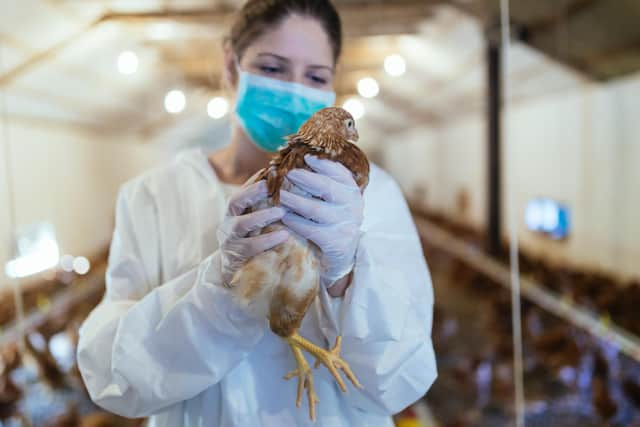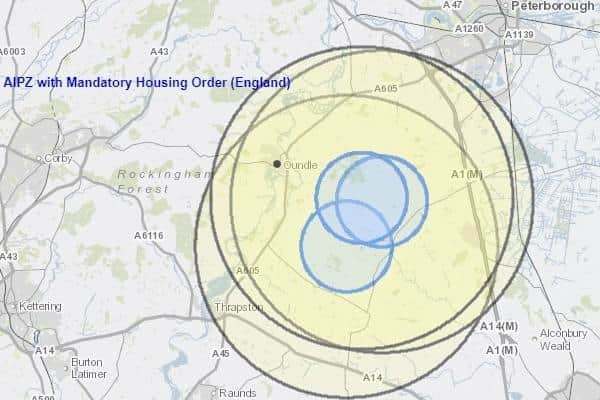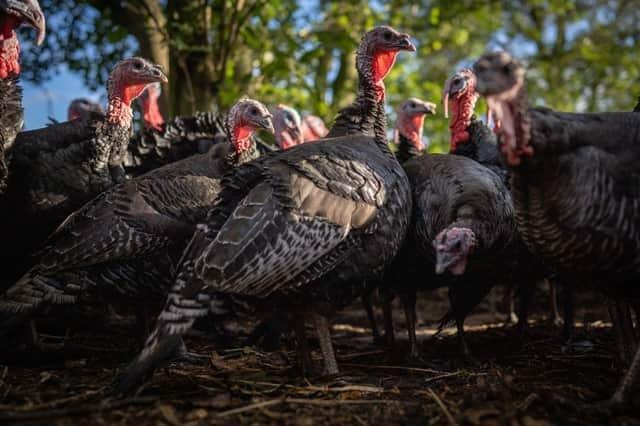Bird flu confirmed at third north Northamptonshire poultry farm as avian virus spreads
and live on Freeview channel 276
Bird flu has been discovered at another north Northamptonshire poultry farm near Oundle – the third to be hit by the highly pathogenic avian influenza.
The HPAI H5N1 virus was confirmed in commercial housed poultry yesterday (November 15) by the Department for Environment, Food & Rural Affairs.
Advertisement
Hide AdAdvertisement
Hide AdIt follows two earlier cases discovered at Hemington and Thurning and is located within the existing 3km protection zone and 10km surveillance zone.


An Animal and Plant Health Agency spokesman said: “Avian influenza has been confirmed in commercial poultry at a premises near Oundle. These birds will sadly need to be humanely culled to limit the risk of the disease spreading to other birds and to mitigate any potential risk to public health.
“Our sympathies remain with the owners and those with birds affected by this terrible disease.”
Centred close to Hemington, it is the second premises near the village in a week to be hit.
Advertisement
Hide AdAdvertisement
Hide AdThe two previous cases were in north Northants turkey flocks. More than 11 million turkeys are bred for meat in the United Kingdom every year, with just under two thirds of these consumed over the Christmas period.


In 3km protection zones poultry and other captive birds must be kept housed and owners must keep to strict guidelines restricting movement of birds.
Thrapston, Oundle and the outskirts of Peterborough fall within the 10km surveillance.
Avian influenza (HPAI) A(H5N1) virus occurs mainly in birds. It is highly contagious among birds and can be deadly, especially in domestic poultry.
Advertisement
Hide AdAdvertisement
Hide Ad

Mandatory housing measures for all poultry and captive birds have been introduced to all areas of England since Monday, November 7, following a decision by the United Kingdom’s Chief Veterinary Officer.
UK Chief Veterinary Officer Christine Middlemiss said: “We are now facing this year, the largest ever outbreak of bird flu and are seeing rapid escalation in the number of cases on commercial farms and in backyard birds across England. The risk of kept birds being exposed to disease has reached a point where it is now necessary for all birds to be housed until further notice.
“Scrupulous biosecurity and separating flocks in all ways from wild birds remain the best form of defence.”
The Government announced a change to the existing bird flu compensation scheme to allow compensation to be paid to farmers from the outset of planned culling rather than at the end.
Advertisement
Hide AdAdvertisement
Hide AdIn consultation with the Food Standards Agency, changed marketing rules have also been introduced in England. Farmers who breed turkeys, geese or ducks for meat will have the option to slaughter their flocks early and freeze the products, which can then be defrosted and sold to consumers between the period November 28 and December 31, 2022.
Public health advice remains that the risk to human health from the virus is very low and food standards bodies advise that avian influenzas pose a very low food safety risk for UK consumers.
Do not touch or pick up any dead or sick birds that you find and instead report them to the Defra helpline on 03459 33 55 77.
